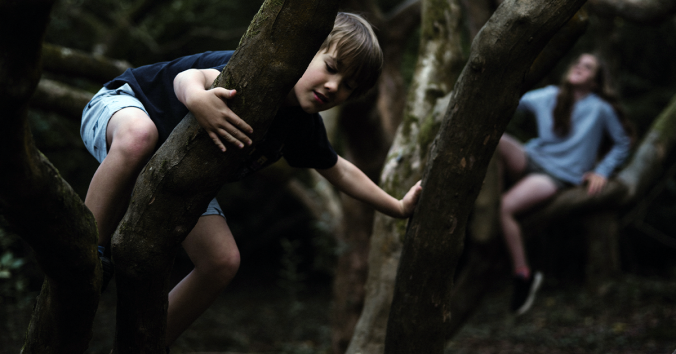It happens that academics write visionary texts that highlight great human challenges. I blogged about such a philosophically visionary article a few years ago; an article in which Kathinka Evers discussed the interaction between society and the brain. In the article, she developed the idea that we have a “proactive” responsibility to adapt our societies to what we know about the brain’s strengths and weaknesses. Above all, she emphasized that the knowledge we have today about the changeability of the brain gives us a proactive responsibility for our own human nature, as this nature is shaped and reshaped in interaction with the societies we build.
Today I want to recommend a visionary philosophical article by Jessica Nihlén Fahlquist, an article that I think has points of contact with Kathinka Evers’ paper. Here, too, the article highlights our responsibility for major human challenges, such as climate and, above all, public health. Here, too, human changeability is emphasized, not least during childhood. Here, too, it is argued that we have a responsibility to be proactive (although the term is not used). But where Kathinka Evers starts from neuroscience, Jessica Nihlén Fahlquist starts from virtue ethics and from social sciences that see children as social actors.
Jessica Nihlén Fahlquist points out that we live in more complex societies and face greater global challenges than ever before in human history. But humans are also complex and can under favorable circumstances develop great capacities for taking responsibility. Virtue ethics has this focus on the human being and on personal character traits that can be cultivated and developed to varying degrees. Virtue ethics is sometimes criticized for not being sufficiently action-guiding. But it is hard to imagine that we can deal with major human challenges through action-guiding rules and regulations alone. Rules are never as complex as human beings. Action-guiding rules assume that the challenges are already under some sort of control and thus are not as uncertain anymore. Faced with complex challenges with great uncertainties, we may have to learn to trust the human being. Do we dare to trust ourselves when we often created the problems?
Jessica Nihlén Fahlquist reasons in a way that brings to mind Kathinka Evers’ idea of a proactive responsibility for our societies and our human nature. Nihlén Fahlquist suggests, if I understand her correctly, that we already have a responsibility to create environments that support the development of human character traits that in the future can help us meet the challenges. We already have a responsibility to support greater abilities to take responsibility in the future, one could say.
Nihlén Fahlquist focuses on public health challenges and her reasoning is based on the pandemic and the issue of vaccination of children. Parents have a right and a duty to protect their children from risks. But reasonably, parents can also be considered obliged not to be overprotective, but also to consider the child’s development of agency and values. The virus that spread during the pandemic did not cause severe symptoms in children. Vaccination therefore does not significantly protect the child’s own health, but would be done with others in mind. Studies show that children may be capable of reasoning in terms of such responsibility for others. Children who participate in medical research can, for example, answer that they participate partly to help others. Do we dare to encourage capable children to take responsibility for public health by letting them reason about their own vaccination? Is it even the case that we should support children to cultivate such responsibility as a virtue?
Nihlén Fahlquist does not claim that children themselves have this responsibility to get vaccinated out of solidarity with others. But if some children prove to be able to reason in such a morally complex way about their own vaccination, one could say that these children’s sense of responsibility is something unexpected and admirable, something that we cannot demand from a child. By encouraging and supporting the unexpected and admirable in children, it can eventually become an expected responsibility in adults, suggests Jessica Nihlén Fahlquist. Virtue ethics makes it meaningful to think in terms of such possibilities, where humans can change and their virtues can grow. Do we dare to believe in such possibilities in ourselves? If you do not expect the unexpected you will not discover it, said a visionary Greek philosopher named Heraclitus.
Jessica Nihlén Fahlquist’s article is multifaceted and innovative. In this post, I have only emphasized one of her lines of thought, which I hope has made you curious about an urgent academic text: Taking risks to protect others – pediatric vaccination and moral responsibility.
In summary, Jessica Nihlén Fahlquist argues that vaccination should be regarded as an opportunity for children to develop their sense of responsibility and that parents, schools, healthcare professionals and public health authorities should include children in debates about ethical public health issues.

Written by…
Pär Segerdahl, Associate Professor at the Centre for Research Ethics & Bioethics and editor of the Ethics Blog.
Jessica Nihlén Fahlquist, Taking Risks to Protect Others – Pediatric Vaccination and Moral Responsibility, Public Health Ethics, 2023;, phad005, https://doi.org/10.1093/phe/phad005
Approaching future issues




Recent Comments